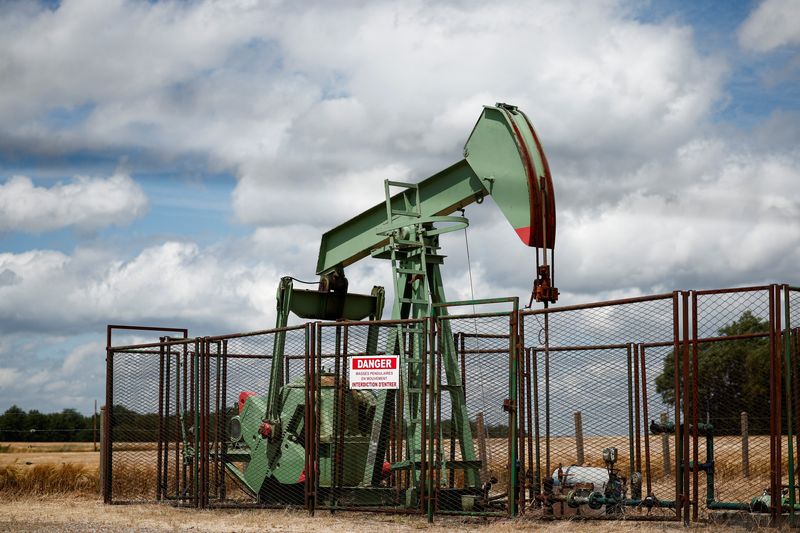BEIJING (Reuters) -Oil prices inched higher on Tuesday, supported by new tariff exemptions floated by U.S. President Donald Trump and a rebound in China crude oil imports in anticipation of tighter Iranian supply.
Brent crude futures gained 12 cents, or 0.2%, to $65 per barrel by 0350 GMT, while U.S. West Texas Intermediate crude was up 13 cents, or 0.2%, to $61.66.
“Trump granted exemptions on electronic tariffs and signalled an auto tariff relief, both of which are seen as setbacks from the previously announced import levies, hence, providing some relief to risk assets, including oil,” said independent market analyst Tina Teng.
“However, the rally in stocks and growth-sentiment commodities is sceptical, as his policy is unpredictable.”
In the latest development in Trump’s whipsawing trade war, he said he was considering a modification to the 25% tariffs imposed on foreign auto and auto parts imports from Mexico, Canada and other places.
The vacillating U.S. trade policies have created uncertainty for global oil markets and pushed OPEC on Monday to lower its demand outlook for the first time since December.
The Trump administration had announced on Friday that it would grant exclusions from tariffs on smartphones, computers and some other electronic goods, most of which are imported from China. That drove both oil benchmarks to settle up slightly higher on Monday.
On Sunday, Trump said he would announce the tariff rate on imported semiconductors over the next week and a Monday Federal Register filing showed the administration had begun an investigation into imports of semiconductors on April 1.
“The market is digesting fast-moving policy developments on the tariff front, while balancing them with nuclear talks between the U.S. and Iran,” said ING analysts in a Tuesday note.
“Clearly, the market is more focused on tariffs and what they mean for oil demand.”
U.S. Energy Secretary Chris Wright said on Friday the United States could stop Iranian oil exports as part of Trump’s plan to pressure Tehran over its nuclear programme.
Also supporting prices were data on Monday showing that China’s crude oil imports in March were up nearly 5% from a year earlier, as arrivals of Iranian oil surged in anticipation of tighter U.S. sanctions enforcement.
Kazakhstan said on Monday that its oil output fell 3% in the first two weeks of April from the March average, confirming a Reuters report, although that still leaves its production above its OPEC+ quota.




